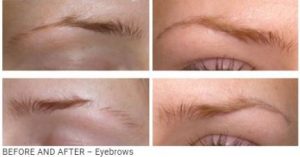A question that patients sometimes ask is: can sinuplasty help with snoring and sleep apnea? Dr. Weiss explains the conditions and the procedure, and answers this important question.
What is Sinuplasty?
Sinuplasty is a medical procedure, performed by a doctor, that involves the insertion of a small balloon catheter into blocked sinus passageways. The balloon is then gently inflated to widen the sinus passages, allowing mucus and other fluids to drain more efficiently. Sinuplasty is considered a safer and less invasive alternative to traditional sinus surgery, which requires a longer recovery time.
Can Sinuplasty Help Snoring?
Snoring occurs when the flow of air through the mouth and nose is partially blocked during sleep. As air passes through the restricted airway, the tissues in the throat and mouth vibrate, causing the sound of snoring. There are several factors that can contribute to the narrowing of the airway and lead to snoring, including:
- Poor muscle tone in the tongue and throat: When the muscles in the tongue and throat are too relaxed during sleep, they can collapse and block the airway, causing snoring.
- Being overweight or obese: Excess weight can lead to the accumulation of fat around the neck, which can narrow the airway and cause snoring.
- Sleep position: Sleeping on your back can cause the tongue and soft palate to collapse to the back of the throat, leading to snoring.
- Aging: As we age, the muscles in the throat tend to weaken, making it more likely to snore.
Because sinuplasty doesn’t address any of these issues directly, it is typically not a primary treatment for snoring. However, sometimes, nasal obstruction due to chronic sinusitis or nasal polyps can contribute to snoring. When the nasal passages are blocked, it can cause air turbulence that leads to snoring. By using a balloon catheter to widen the blocked sinuses, sinuplasty can improve airflow and reduce snoring in some patients. However, it’s important to note that sinuplasty is not a guaranteed solution for snoring, and its effectiveness may vary depending on the underlying cause of the snoring.
Is Sinuplasty Good for Sleep Apnea?
Sleep apnea is a sleep disorder where a person stops breathing or takes shallow breaths repeatedly during their sleep. This can cause sleep disturbances and health issues. The most common type is obstructive sleep apnea, where the throat muscles relax and block the airway. Symptoms may include loud snoring, gasping or choking during sleep, and feeling tired during the day.
While sinuplasty can help improve sinus-related symptoms, it does not address the causes of sleep apnea and is not a recommended treatment for sleep apnea. There are a variety of treatments available for sleep apnea, including continuous positive airway pressure (CPAP) therapy, oral appliances, surgery, and lifestyle changes such as weight loss and avoiding alcohol and sedatives. However, sinuplasty is not typically considered a primary treatment for sleep apnea. If someone is recommending sinuplasty for sleep apnea, it would be prudent to seek a second opinion.


